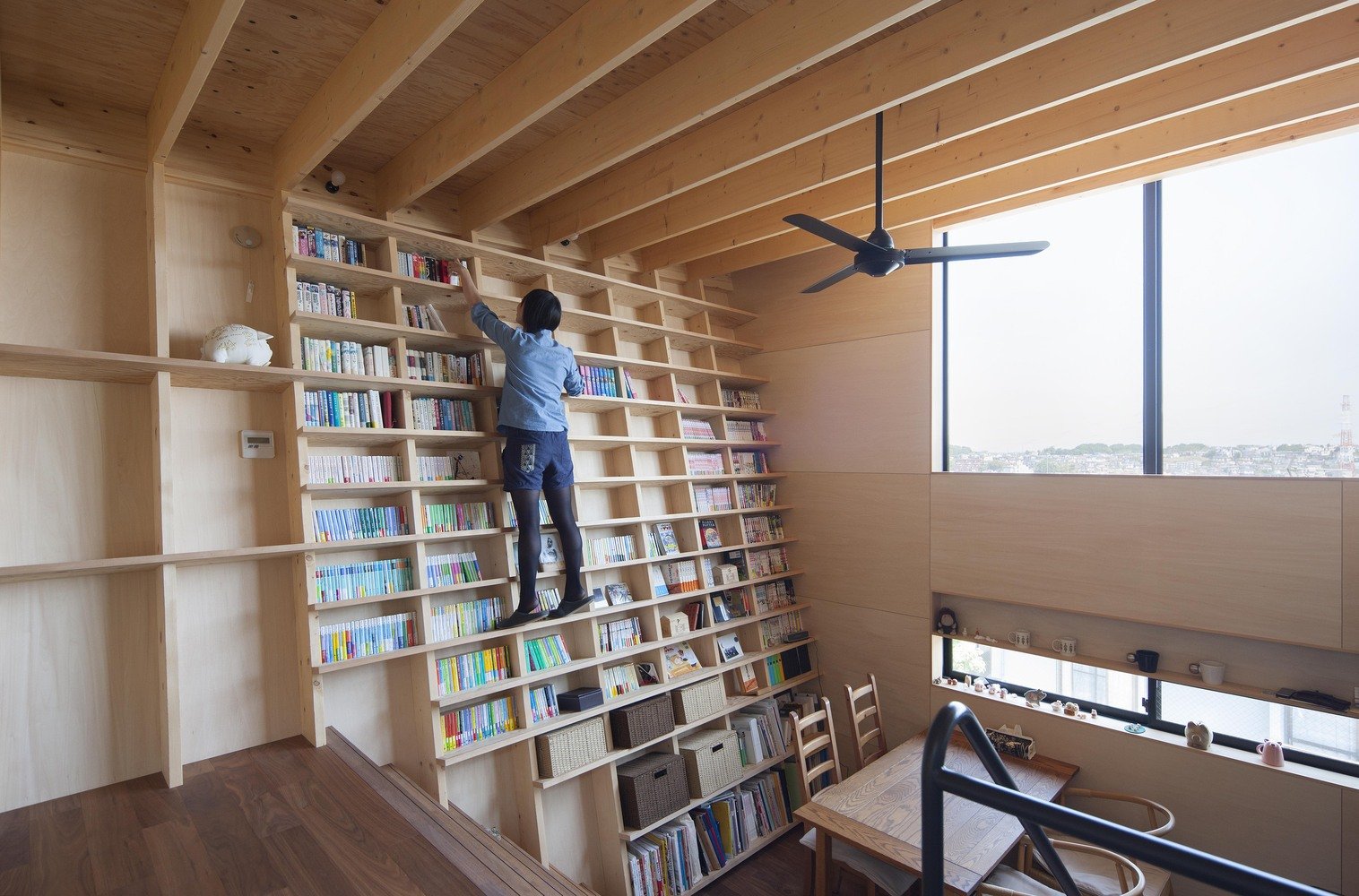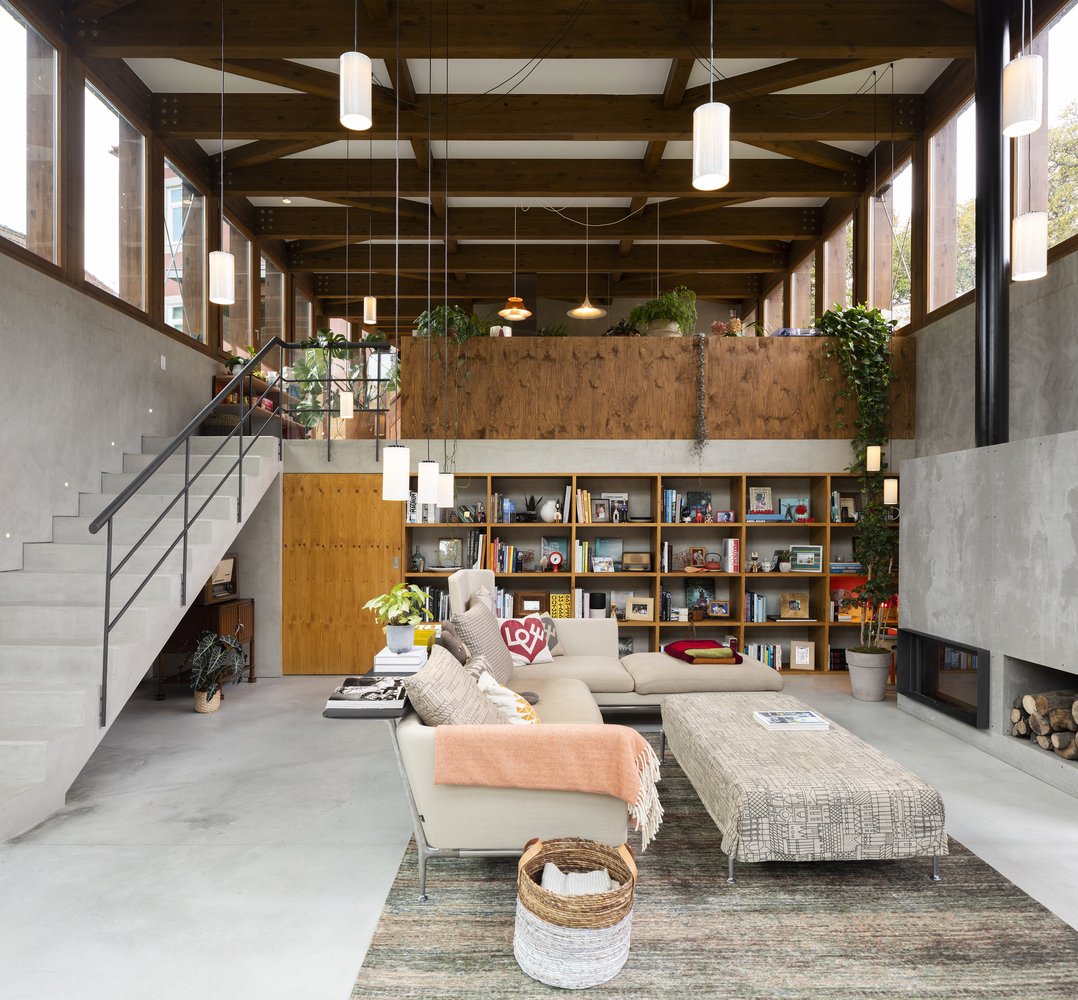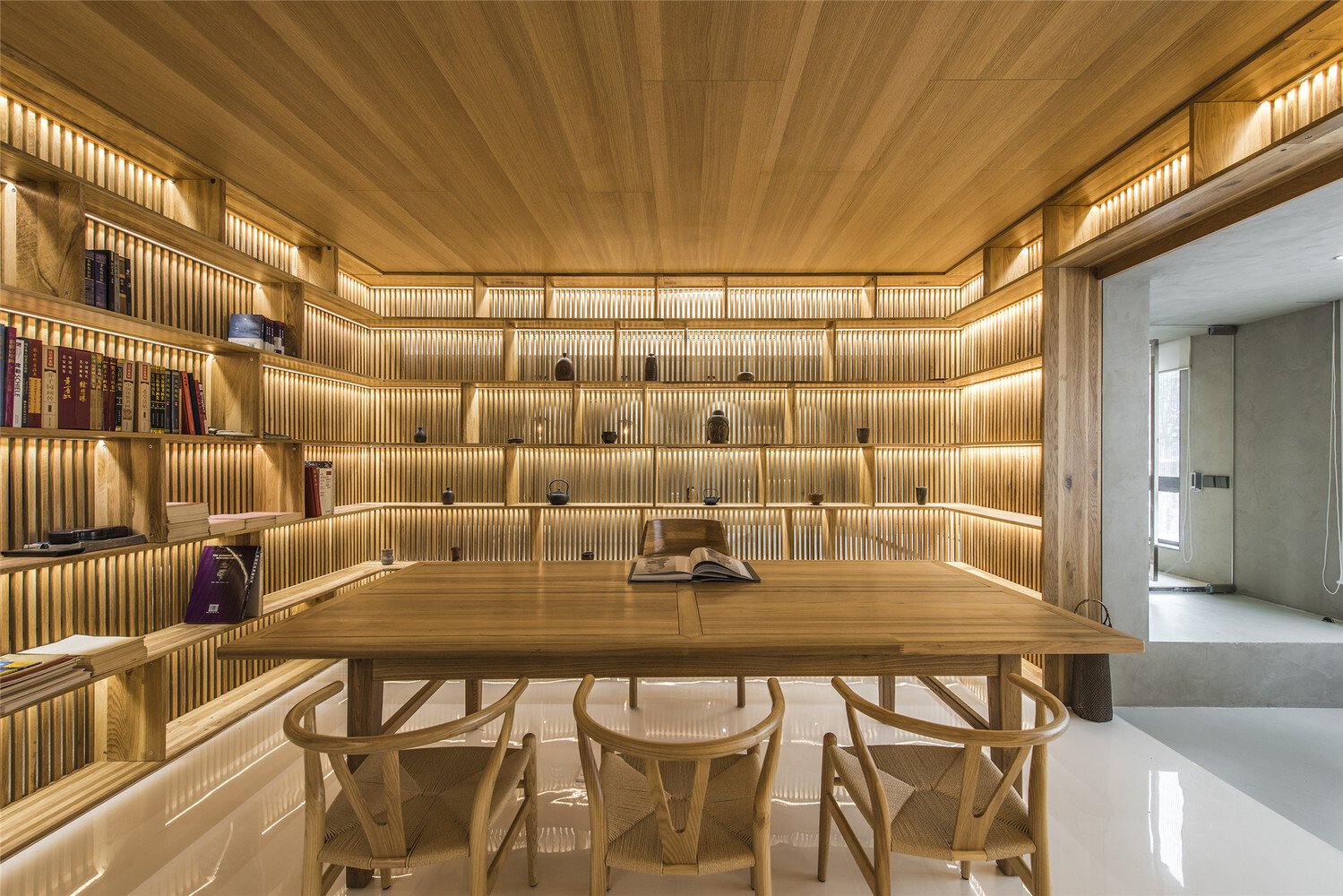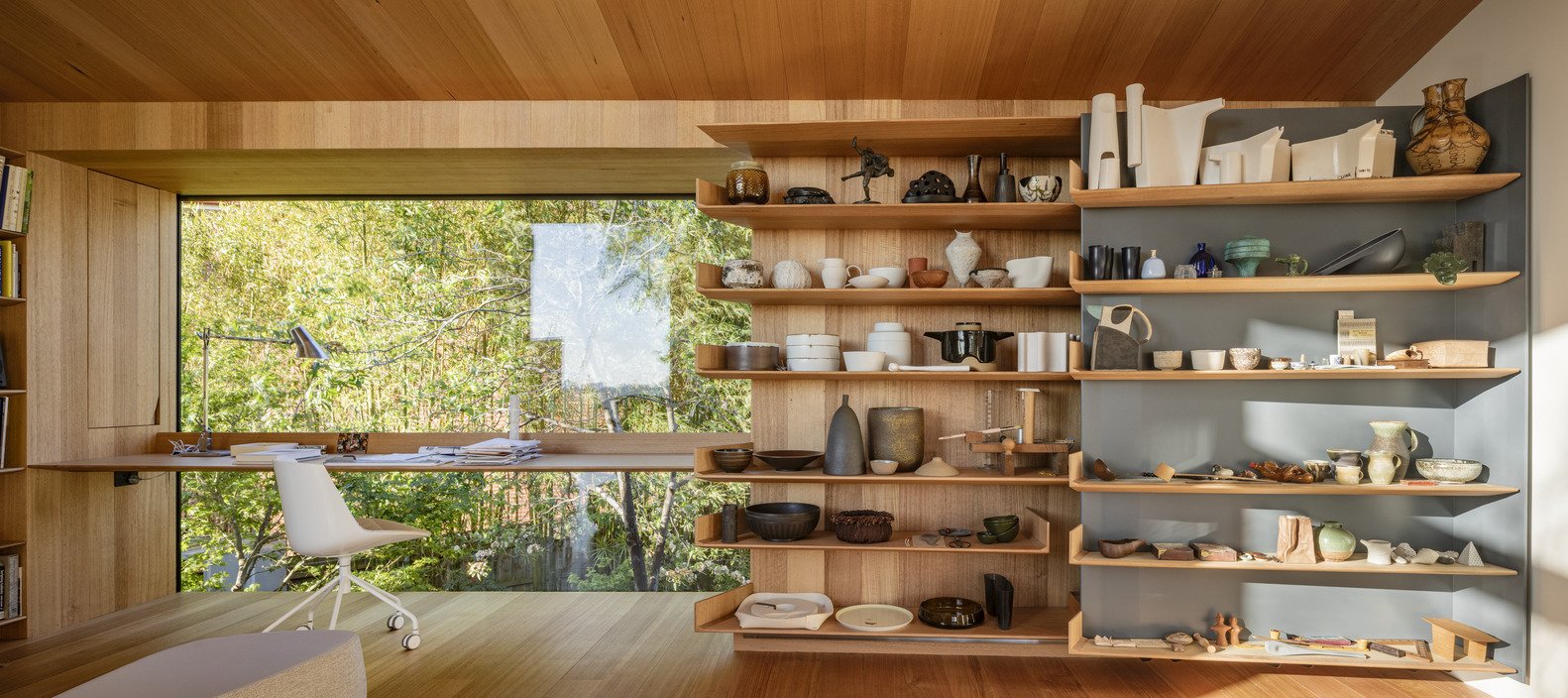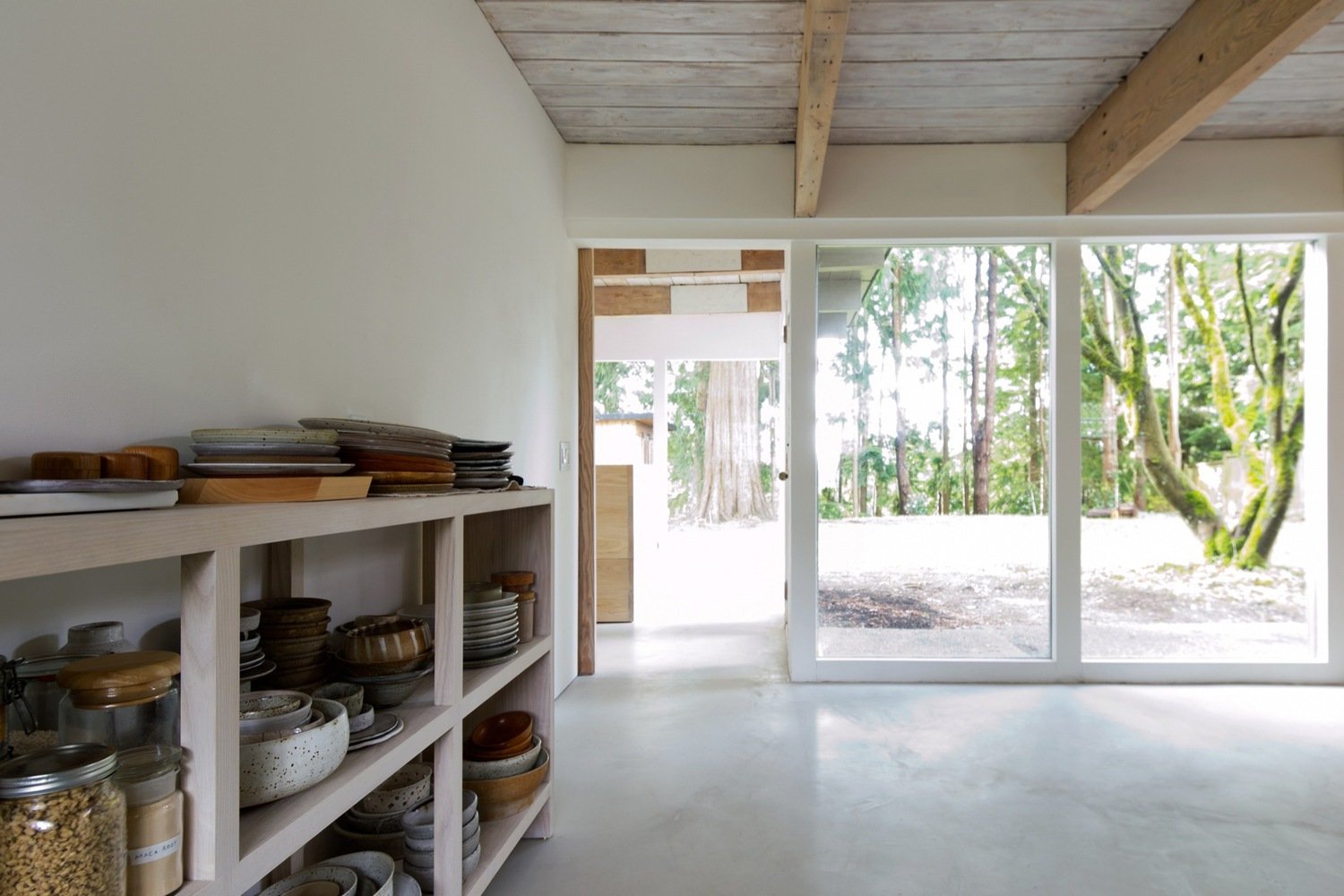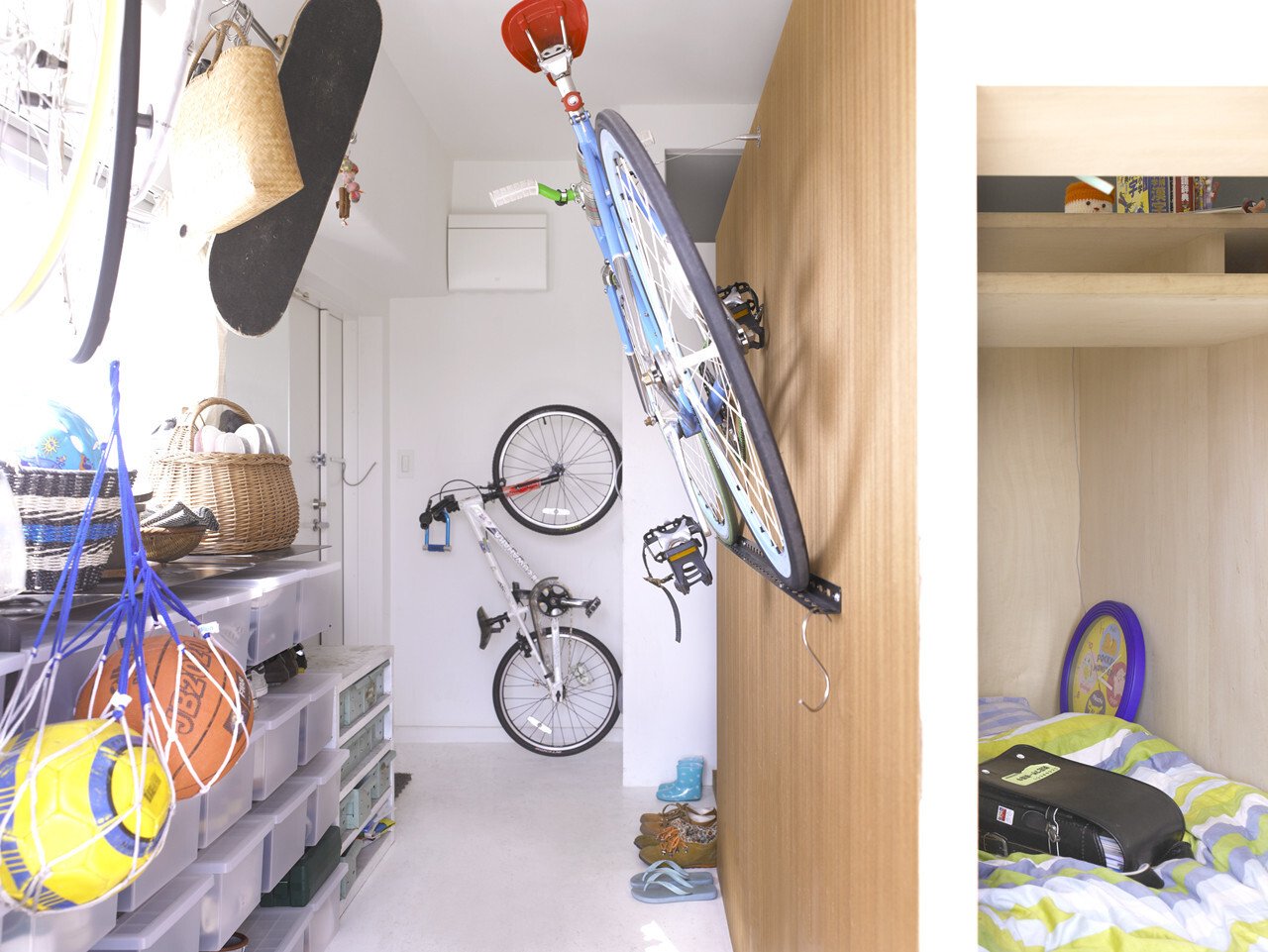18 Interior Projects that Use Open Storage to Hide Clutter in Plain Sight
Home spaces filled with clutter and mess can be mentally exhausting, making it impossible to relax with the weight of life visually bearing down on an interior. ‘Tidy space, tidy mind’ as the idiom instructs, and home environments that focus on clean lines – either with a minimalist lifestyle, decluttering, or expansive and well-organized storage systems – cultivate a more meditative mindset. Perhaps, however, the demonization of clutter and these are, characterless spaces it creates, can get a little, well, boring.
So-called ‘clutter’ can still spark joy when given an opportunity, however. So whether they hold treasured memories in photo frames, bookcases of stories not just in print, proud achievements, inspiring equipment, or functional items kept close to hand, open storage elements like shelving, doorless cabinetry, or hanging hooks and pegs can create decorative, textured and, most importantly, personalized surfaces.
Books
On the one hand, bookshelves can be one of the easiest and simplest sections of the home to declutter, fully on unwanted presents and past reads – with the average reader only getting through 12 books a year, most of them will never be opened. But just because a book won’t be read, it doesn’t mean it isn’t useful.
On the other side of the page, the appearance of a book-lined wall can provide as much visual warmth and comfort as an open fireplace when partnered with a comfy chair. Meanwhile, designers shouldn’t feel restricted by functionality when deciding how high book storage can go. Those above-head-height shelves can be reached with library ladders or a step stool, but even impossible-to-reach shelves still add a cozy feeling to an interior when lined with unreadable books.
Old Shed New House / Tonkin Liu
House for Booklovers and Cats / Barker Associates Architecture Office
6House / Zooco Estudio
Bookshelf House / Shinsuke Fujii Architects
Photo Frames
Photo frames of passed loved ones and happy memories are a sign of a healthy relationship with the past and of a future that’s ready and willing to make more. But allowing frames to dust up side tables and coffee tables, and even clog up wall space, can feel like being attacked, rather than comforted. By keeping memories in designated open shelf spaces or combing them with other diverse treasured memories, photo frames can offer support when it’s needed, instead of intrusion when it’s not.
Golgota House / Floret
Villa T House / Taillandier Architectes Associés
Collections
Lying in the rubble after the modern war on clutter sits the falling popularity of collecting things – I recall only too well from my own childhood, for example, my parent’s penchant for horrifying ‘Toby Jugs’ – while even the most common collections of smaller objects like states (philately) and coins (numismatics) seem to have fallen in number. But whether our collected items are large or small, by presenting them with pride, enhancing both their color and form with contrasting walls or keeping them considerately lit with shelf lighting, we can celebrate an important part of our personalities with dignity.
Haitang Villa / ARCHSTUDIO
Kew House / John Wardle Architects
Crafts
Keeping homemade treasures visible on open shelves and storage is an important element in ensuring the pleasure of crafting remains present in our lives, reminding us of our achievements and accomplishments. By positioning finished products of creative endeavors alongside inspirational materials and objects, we encourage the continuation of creativity, whether our crafting lifestyle is professional or personal.
The Curated Home / Mustard Architects
North Vancouver House / Scott & Scott Architects
Children’s confidence and independence
Children can be one of the most efficient clutter bombs on the market, producing an impressive catalog of scrawled drawings and garishly colored non-denominative Play-doh objects you’re expected to keep and treasure forever. But as hard as it is to consistently find space for an expanding menagerie of creations, time has a powerful effect on perception. A few years down the line, the memories of rejected works fill you with guilt and regret.
Giving children their own specific storage areas to keep and exhibit their works offers not only pride and encouragement of their creative achievements, but also promotes independence while setting limits on selection. Meanwhile, if space allows, overfilling a home with open shelving provides abundant exhibition space for a family to grow into.
House in Tezukayama / Fujiwaramuro Architects
Chivalry Road / Sketch Architects
Parentheses House / SAI Architectural Design Office
Kitchens
In the same way that keeping toys and books visible to children keeps them fresh in the memory and encourages independent play and reading, so, too, does keeping a kitchen visibly stocked with fresh ingredients and aesthetic apparatus, keep both in play. Another advantage of open, doorless cabinetry in kitchens is the ease at which simple tableware like crockery and glassware can be retrieved. When open cabinets are utilized in a kitchen island or peninsula, for example, it provides access from both sides of the kitchen, and both sides of mealtimes – for pre-use and post-clean.
Polychrome House / YSG.Studio
Axis House / LCGA Design
MDN House / Nook Architects+Amomicasa
Entranceways
A home’s entranceway is typically one of the smallest and narrowest in the floor plan, so it’s understandably low on the list of design considerations. In the most active households, however, these areas have a huge amount of footfall and storage requirements. With a huge array of items needed to serve varying weather conditions and extra-curricular pursuits and hobbies, porches and hallways reach terminal clutter with speed and ease. By keeping items in specific places beside the door, however, they’re easy to find and prepare in the rush to leave the house. And even forgotten objects are always just a few steps away.
Bright House / HAO Design
nr1977 / mihadesign
Source: Arch Daily
Words: James Wormald
Photography Credit: ©Norihito Yamauchi, ©Greg Storrar, ©Francis Dzikowski, ©Imagen Subliminal, ©Tsukui Teruaki, ©Ivo Tavares Studio, © Luc Boegly, ©Magic Penny, ©Trevor Mein, ©Tim Crocker, ©Toshiyuki Yano, ©Adam Scott, ©Norihito Yamauchi, ©Prue Roscoe, ©Hey! Cheese, ©Del Rio Bani, ©Hey! Cheese, ©Sadao Hotta





